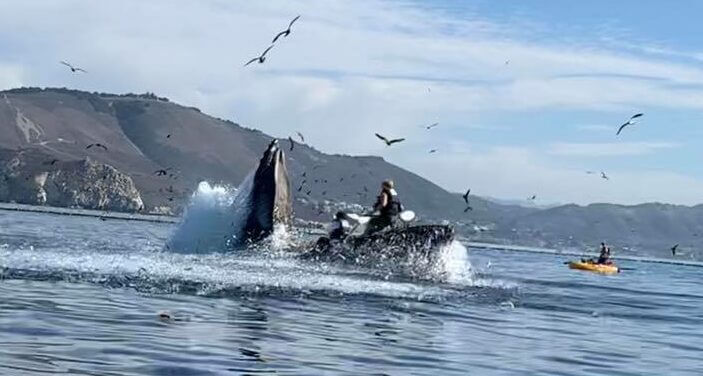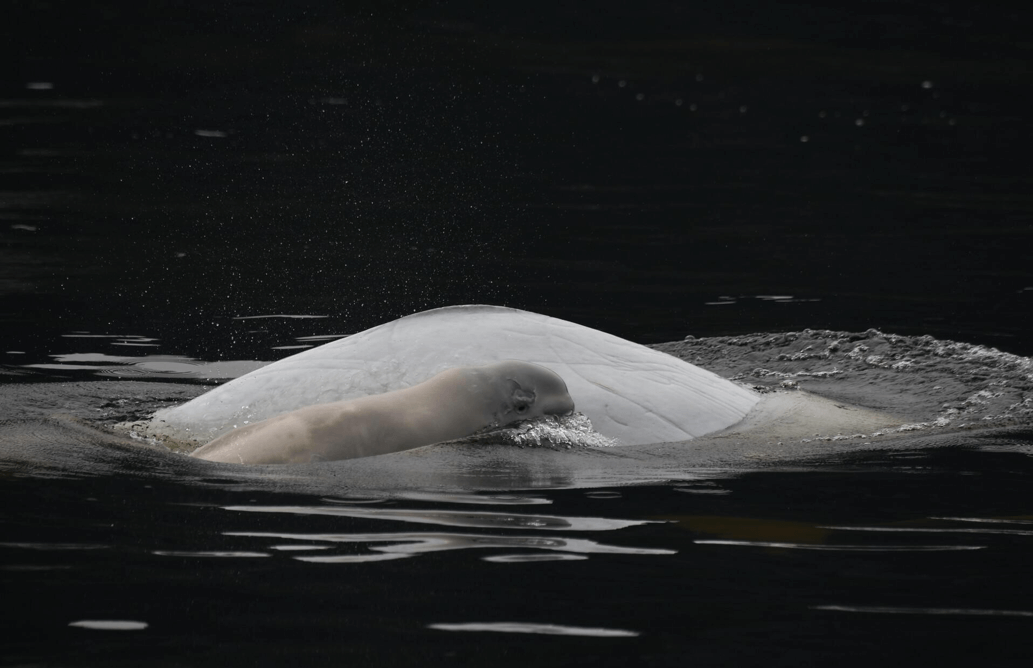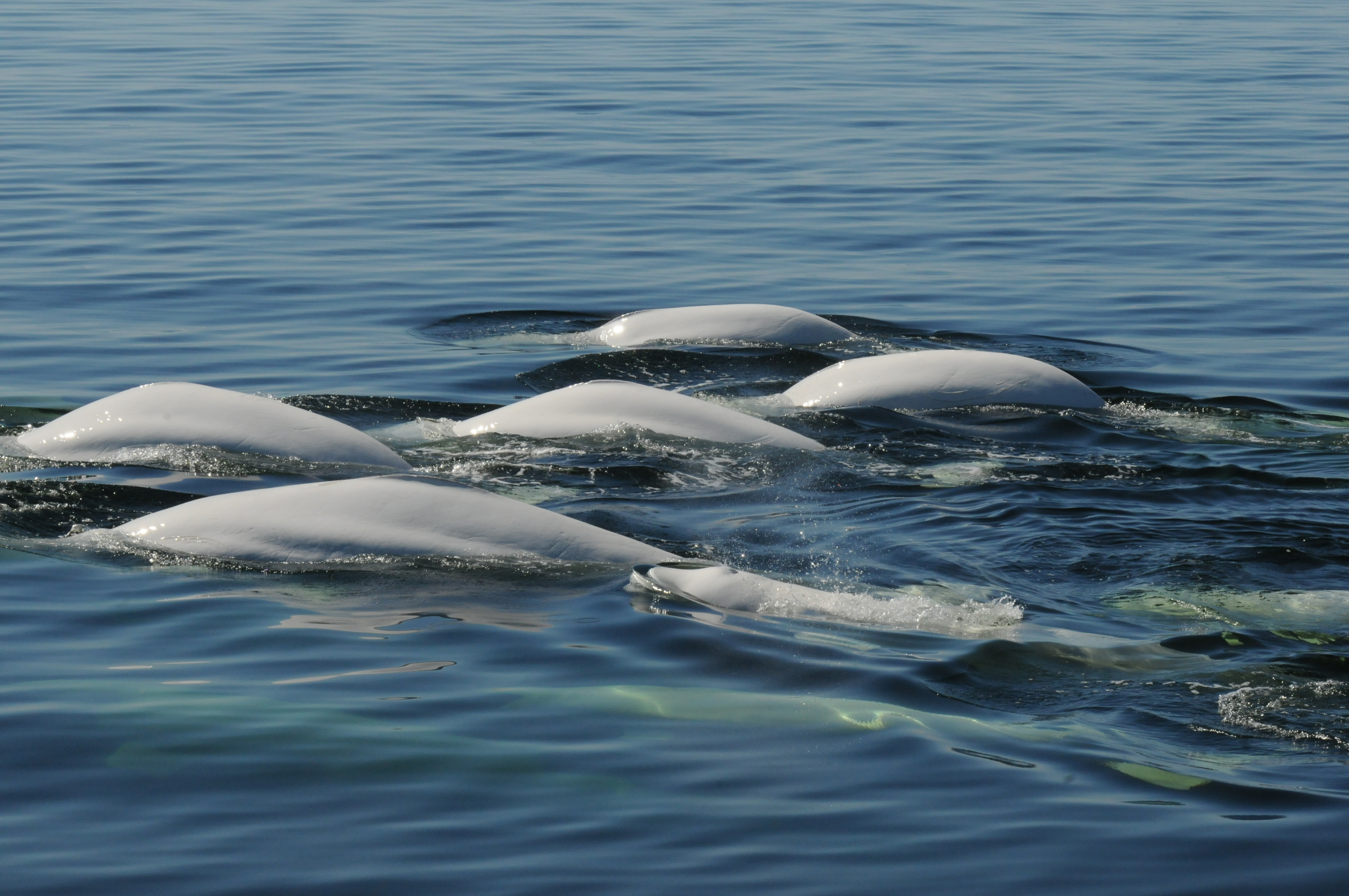The video of two kayakers getting caught in the mouth of a humpback has been viewed around the world. Off the coast Avila Beach, California, two women were paddling through a high-traffic area for both pleasure boaters and feeding whales. A humpback whale then inadvertently grabbed them as it engulfed a school of small fish near the surface. The kayak and the two women were quickly spat out by the animal. Uninjured, they were able to return to dry land without assistance. What should we take away from this most unusual mishap?
Zero risk of being swallowed, but...
No, the humpback could not have swallowed the kayakers or their craft. The size of its esophagus is not suitable for “prey” of this shape and size. However, the force of the animal’s jaw could have injured or even killed the kayakers. They could also have been trapped underwater for an extended period and drowned. So they were lucky, just like the diver that ended up in the mouth of a Bryde’s whale.
The kayakers were more shaken up than anything else, but what about the whale? It is not known whether or not it injured itself or broke a baleen during the incident. It is also difficult to calculate the energy spent in vain to catch prey that it could not swallow.
Living with whales not always so easy
This encounter clearly illustrates the hindrance that a watercraft can represent for a whale, even one as lightweight and quiet as a kayak. This is yet another obstacle in its environment that it needs to take into account when it wants to surface to breathe or when it is feeding. For kayakers flush with the water, spotting animals coming their way is not always so straightforward, either. Extra caution is therefore essential for ensuring one’s own safety on the water. What’s more, it goes a long way to ensuring the whales’ well-being as well!
In Canada, regulations for boating and shipping in whale habitat aim to reduce the impact of these activities on them. These regulations apply to all types of watercraft, even kayaks. For example, a distance of 100 metres must be maintained with most species, including humpbacks. This distance is notably intended to avoid this type of incident, which, let’s not forget, is quite rare.
Stay informed and exercise caution
Being familiar with whales and the marine environment can also help reduce the risk of incidents. For example, you can learn to recognize feeding behaviours such as swimming on the side, rapid surface breathing, opening of the mouth, etc. In this case, it is better to move away to give the whale all the leeway necessary to enjoy its next meal. Because when a whale is concentrating on its prey, it is paying less attention to you! Clues such as a large gathering of diving seabirds indicate that a sizable school of fish is likely below the surface. It is best to avoid such areas, first to allow the birds to feed, and second because whales may also be interested in these prey.
Interested in learning how to navigate in the presence of whales? Free training is available online. It will help you safely navigate in the presence of cetaceans.





